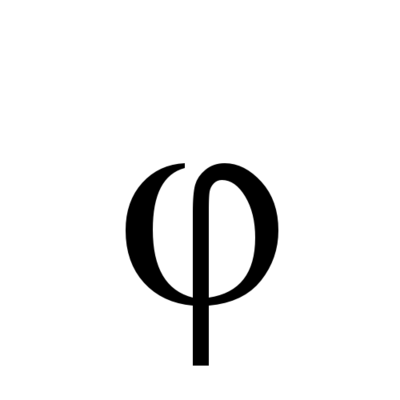I’ve been using one but I’m not sure what benefits I’m getting from it. I feel like the only thing happening is I’m adding a little bit of latency to all my requests for no reason.
Pros:
- Websites can’t see your real IP and thus can’t figure out your real location that easily
- You might also be able to blend in with other users who use the same VPN server
- Your ISP can’t see what you’re websites you’re connecting to
- Your Network operator (e.g. a coffee shop offering public wifi) and you’re ISP can’t see your unencrypted connections (e.g. HTTP, Telnet)
- You can bypass regional censorship or other forms of content unavailability
Cons:
- Your VPN provider can see everything you’re connecting to (but not the content if you use HTTPS, which thankfully has become very common), so you need to be able to trust them
- A good and trustworthy VPN usually costs money
- Slightly slower connection and higher latency
Things to look out for when choosing a VPN provider:
- No-log policy
- Regular security audits
- Open source client applications
- Private/anonymous payment options (crypto currency)
- Monero is the best option if you want to stay fully anonymous
- Minimal information required for signing up, ideally none (some providers don’t even require an email address, they just give you a random generated Account ID)
deleted by creator
The fact that they allow you to order a physical voucher with a product key, and that product key serves as your only authentication makes it especially anonymous. I love it.
No port forwarding BTW for anyone looking at this.
They recently gave up the fight against groups (copyright groups) accusing them of aiding with CSAM so they stopped port forwarding
AirVPN has port forwarding if you need that. You can also do it with Proton, but last time I used it, it was quite janky.
And ProtonVPN IMO.
Yeah. Proton, Mullvad and IVPN are the three best providers out there. That’s also why they’re recommended by privacy/security enthusiasts: https://www.privacyguides.org/en/vpn/?h=vpn#recommended-providers
Cash is the best payment option. Only mullvad and proton take cash.
Monero has yet to prove its privacy. Math nerds can’t crack an anonymous letter with cash.
your* ISP
In the cons there’s also an increase of the attack surface since you’ll be using a program to run the VPN
On the pros, some offer DNS blocking
Wireguard and openvpn both have open source clients.
That may make it more secure than other clients, but the surface is still larger. Any time you add an executable
- Websites can’t see your real IP and thus can’t figure out your real location that easily
Most people in the US use it to avoid getting letter from their ISP from downloading illegal content.
Some people use to access other country content.
Some people use it to avoid ISP snooping their browsing habits
Genuine question: How can an ISP detect that someone is downloading illegal material if the actual content is encrypted using SSL/TLS? Is it all approximated based on the domains/IPs and the amount of data that is sent? If they can’t tell with a 100% certainty, can it be used as proof when trialed in court?
Isn’t that mainly just torrent trackers that publish your IP address and then the ISP gets a request for who was using that particular IP address. I don’t think an ISP would itself be interested in detecting whether their customers download illegal content - there is no business case for them to do that.
I’m not an expert but I’m guessing unencrypted DNS requests and potentially monitoring IPs of different torrents. DNS requests would show what websites a user is going to, and then you can always see peer IPs when connected to a torrent.
A few ways I’ve used it.
Odd, a site seems to be non-functional. (Enable VPN). Site begins to work. Oh, my ISP was fucking with me.
A site is stuttering. (Enable VPN). Magically works. Oh, my ISP was fucking with me.
The most annoying, my family’s Internet over the holidays was blocking my laptop from updating Ubuntu, enabled VPN, udpate went just fine.
In general, it stops ISPs from dictating if they approve or disapprove of your behavior. Hide what you’re doing and all traffic is just anonymous bits and bobs.
As it fucking should be by law… but in the US the conservative party continually repeals the law that enforces non-interference. So for now, we need VPNs.
A safe access to my home infra/lab.
From my experience, the latency can be neglected in comparison of the latency of the connection of a mobile.
When the VPN has connexion issues, all the apps on my phone are waiting. Some reach timeout. But they recover all at once, without DNS issues, when the VPN comes back up.
When I move from network to network, from private wifi to public wifi, from country to country, … I am know I can try hotspots without checking if it’s from a malevolent entity (private hacker, stupide enterprises (who log for whatever reason that I go on website they don’tlike (pro-abortion, gaming, …), or anything else). If the VPN is up, I can. If it is down, I can’t but there’s no risk for me, just momentary annoyance.
I find this Tom Scott video (YouTube) to be pretty good at explaining why you would want a VPN and why most marketing arguments are BS.
Other comment have gone way more in-depth, but there’s also a difference between using commercial VPNs and ones you set up yourself. I have a few private VPNs set up on servers I physically own in different countries and that offers different protections than just using NordVPN.
You can use your file server, your git server, your plex server, etc. when you’re not at home.
Oh, you mean the advantages of using somebody ELSE’S vpn?? They get money.
i enjoy not getting threatening letters from my ISP about downloading shit.
A VPN is something that, was created to let you remotelly access another network.
Say for example that you want to connect to your LAN from a coffee shop. That’s why they were created in the first place.
Now, they were popularized as something else.
The benefits of the nowadays VPNs are mainly privacy and piracy related.
The reasons most people use a VPN are essentially:
-
Hide your traffic from your ISP. (By doing so, you are allowing your VPN provider to see everything you do while connected. Just like your ISP would, if you weren’t)
-
Hide your real IP behing one of your VPN’s server. (Usefull for torrenting and keeping anonymity)
-
Bypass geolocation restrictions. (e.g Watching U.S Netflix from Europe)
Do note that, if ypu are going to route your traffic through a VPN, you are giving your provider access to your online activities.
Choose your provider wisely!
Choose a VPN with a strict no logs policy, RAM only servers and strong privacy policies. (Open Source if you can).
Reputable names in the VPN world are Mullvad and Proton VPN.
Avoid the traps of budget VPN or highly advertised ones!
The benefits of the nowadays VPNs are mainly privacy and piracy related.
Piracy is actually not the reason to use a VPN, pirates use a VPN to be anonyme and not to pirate content.
Similar as you would not say a hammer is a tool that can be used to hit something and not a hammer is used by construction wormers and burglars.
-









